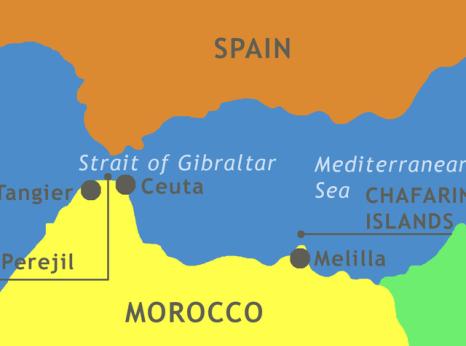Morocco: Sahrawi Activist Beaten By Prison Guards

Mohamed Lamine Haddi is a Sahrawi activist who participated in the 2010 Gdeim Izik camp protesting Sahrawis’ social and economic conditions. In November 2010, he was arrested in the violent clashes following the dismantling of the camp. In 2013, he was sentenced to 25 years in prison on charges of participation in and aiding a “criminal organisation,” and participation in violence against public forces which caused intended death under Articles 293, 129 and 267 of the Moroccan Penal Code. The military court which tried him and other Sahrawis, all of them civilians, did not investigate the defendants’ claims that they had been forced to sign confessions under torture. A civilian court confirmed his sentence in 2017, using the statements that he said had been made under torture.
Since being in Tiflet II prison, prison guards have subjected Mohamed to regular verbal abuse, including death and torture threats. Mohamed is not permitted to leave his cell, even for the one-hour walk that he was previously allowed, and so spends 24 hours per day in his cell. During the winter, he was not allowed hot showers like other prisoners. In March 2022, his family sent him a package containing books and medicine, but the prison director refused to give him anything except for one book. On 4 April 2022, Mohamed Lamine Haddi called his family to tell them that prison guards had transferred him to Kenitra prison on 28 March 2022 and held him there until 4 April 2022, in a small cell the size of a toilet cubicle.
Mohamed Lamine Haddi's health severely deteriorated following his 69-day hunger strike in January 2021, which he went on to demand an end to his ill-treatment. During that time, he told his family that he did not receive any medical care during his hunger strike, despite suffering partial paralysis, trembling, memory loss and severe pain. Prison guards force-fed him, ending his hunger strike non-consensually on 23 March 2021. In a phone-call to his family on 9 April 2021, Mohamed Lamine Haddi said that the prison director had threatened to put him in a small, dungeon-like cell if his family continued to publicise his case. According to his lawyer, the prison authorities previously detained Mohamed Lamine Haddi in such a cell in 2018 as punishment. His lawyer described the cell as a small room of 2m² with no window, tap nor toilet. It is known as the “punishment cell” or “coffin” because it is the same size. His family called the King’s Prosecutor and the prison director several times, with no response.
Human rights international standards, such as the United Nations’ Standard Minimum Rules for the Treatment of Prisoners, define solitary confinement as spending 22 hours or more per day without meaningful human contact. They provide that prolonged solitary confinement – over 15 consecutive days – is considered cruel, inhuman, or degrading treatment. Under the Moroccan Prison Law, solitary confinement is an exceptional measure imposed only as a security or protective measure for prisoners. Morocco’s Penal Code also criminalizes torture.
Western Sahara is the subject of a territorial dispute between Morocco, which annexed the territory in 1975, and claims sovereignty over it, and the Polisario Front, which calls for an independent state in the territory. In recent years, access to Western Sahara has grown increasingly difficult for external monitors as the human rights situation has continued to deteriorate. The UN Security Council has ignored calls by Amnesty International and others to add a human rights component to the United Nations Mission for the Referendum in Western Sahara (MINURSO), which would allow for monitoring and reporting on human rights abuses.